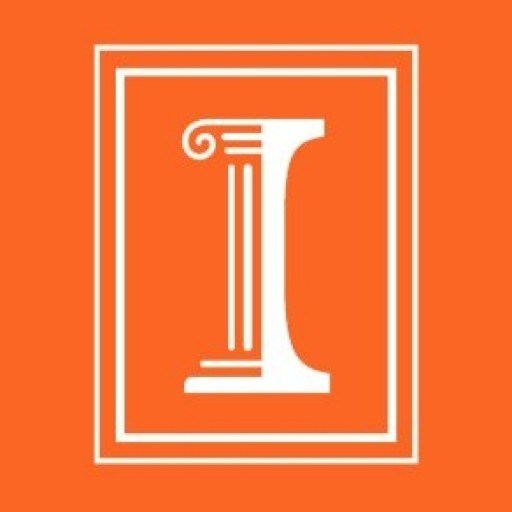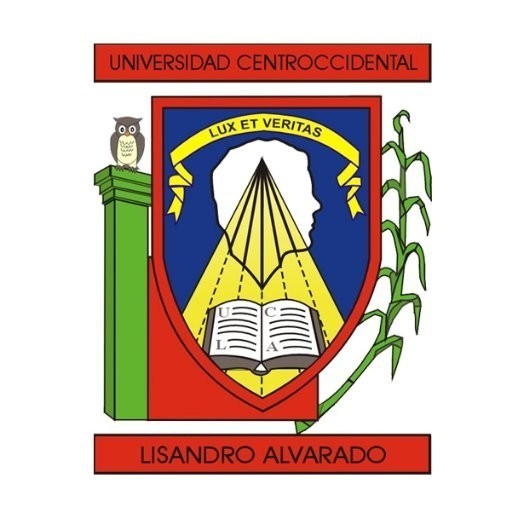Photos of university / #epflcampus
Financial Engineering at the Swiss Federal Institute of Technology in Lausanne (EPFL) is a cutting-edge multidisciplinary master's program designed to prepare students for the complex world of finance through rigorous training in quantitative methods, financial theory, and computational techniques. This program combines the principles of mathematics, computer science, economics, and finance to equip graduates with the skills necessary to develop, analyze, and implement innovative financial models and strategies. Students will learn to apply advanced mathematical tools such as stochastic calculus, statistical analysis, and numerical methods to real-world financial problems, including derivatives pricing, risk management, portfolio optimization, and algorithmic trading.
The curriculum is structured to provide both theoretical foundations and practical experience. Core courses cover areas such as quantitative risk management, financial markets, investment strategies, and computational finance, ensuring students gain a comprehensive understanding of the financial industry’s operational and strategic aspects. Elective courses allow students to specialize in topics such as machine learning applications in finance, fintech innovations, or structured products. The program emphasizes experiential learning through case studies, financial data analysis projects, and internships with industry partners, fostering essential skills in problem-solving, critical thinking, and effective communication.
Students benefit from EPFL’s close ties to the financial industry and innovation ecosystems, offering opportunities for networking, collaboration, and exposure to cutting-edge developments in fintech, blockchain, and AI-driven financial solutions. The program encourages interdisciplinary collaboration across departments and includes innovative teaching methods supported by state-of-the-art laboratories and computational resources. Graduates of the Financial Engineering master's program are prepared for careers in financial institutions, hedge funds, asset management firms, consulting companies, and fintech startups, or to pursue further academic research.
Combining rigorous academic training with practical industry insights, the Financial Engineering program at EPFL aims to develop highly skilled professionals capable of tackling the financial sector’s most pressing challenges with innovative, data-driven solutions. It is ideal for students passionate about mathematics, programming, and finance who seek a comprehensive education that merges theory and practice at the highest level, ultimately contributing to the advancement and stability of global financial systems.
MFE courses are designed exclusively for MFE students and are seamlessly integrated with one another. For example, the core courses in stochastic calculus and derivatives were conceived as a true sequence to allow students to learn the mathematical tools as they become necessary to the financial applications.
During the first semester students take a number of compulsory foundation courses that provide them with a solid fundamental understanding of the essentials of economics, finance, mathematics and econometrics.
The second and third semesters offer compulsory advanced courses in which the students learn about models at the forefront of both academic thinking and industry practice. In addition to compulsory advanced courses, the third semester offers also a wide range of electives, which allow students to tailor the curriculum of the program to their specific interests.
Foundations courses
The compulsory foundation courses provide students with in-depth coverage of the key concepts and topics with which every finance professional should be familiar. They also serve as a firm foundation for the advanced and elective courses. These courses cover the following areas:
- Introduction to finance
- Accounting for finance
- Econometrics
- MacroFinance
- Quantitative methods for finance
- Stochastic calculus I
Most of the foundation courses are taught in the first semester of coursework.
Advanced courses
In the second and third semester MFE students have to follow a number of advanced compulsory courses that cover important aspects of finance and financial engineering such as:
- Derivatives
- Investments
- Financial econometrics
- Sochastic calculus II
- Credit risk
- Fixed income analysis
- Real options and financial structuring
- Advanced derivatives
Detailed descriptions of all the MFE courses (including course contents, prerequisites and grading schemes) can be found by following the relevant links on the study plan page.
Elective courses
In the third semester, MFE students are free to choose a number of electives in order to tailor the program to the requirements of their career of choice. Possible elective courses include:
- Advanced topics in financial econometrics
- Global business environment
- Computational finance
- Computational game theory & applications
- Financial big data
- Venture capital
- Securitization & the financial crisis
- Intelligent agents
- Mathematical modelling of behavior
- Numerical approximation of PDE's I
- Risk, rare events and extremes
- Time series
- Quantitative risk management
While the above list of courses illustrates the number and range of electives offered in the MFE program, the actual portfolio of courses in a given academic year may vary slightly from year to year depending on enrollment.
Internship and master thesis
The curriculum of the MFE is completed by a 6-month internship in the financial industry. During this period, each student must write a master thesis under the joint supervision of their internship advisor and one member of the MFE faculty acting as an academic advisor.
- Holders of a Bachelor’s degree in a technical discipline such as mathematics, physics, computer science, engineering or economics are eligible to apply for admission into the MFE. Applicants should have a high level of intellectual ability and exceptional analytical skills as well as a strong interest in finance. They should also have a solid background in mathematical analysis, statistics and probability theory. In addition applicants to the MFE should command either one formal computer language such as C, C++ or Java, or a high-level language such as Matlab or Mathematica.
- Your resumé (curriculum vitae)
- Copy of your University degree(s) or Bachelor's degree. If you don't have your degree yet, you will bring it to the Registrar's Office upon registration at EPFL*.
- Legalized transcripts from each university you have attended.
- A statement of purpose. See hereunder for a more detailed explanation.
- Three recommendations (except holders of any EPFL Bachelor's degree applying in another field than their original field and except for candidates from another Swiss university applying to a Master in the same field of study as their Bachelor).
During the electronic application process, you will have to give the details of three referees, who will then be requested to produce recommendation letters for you directly to EPFL. See hereunder for a more detailed explanation. - Your identity card or passport.
- For foreigners who already live in Switzerland: your residence permit.
- Extra documents such as TOEFL or GRE scores, research publications or other portfolios of your previous work, are welcome but not compulsory. We will only consider documents uploaded in your online application form. (No documents sent by postal mail).
- Application fee CHF 150.
The Master in Financial Engineering at the Swiss Federal Institute of Technology in Lausanne (EPFL) offers a comprehensive curriculum that prepares students for careers in quantitative finance, risk management, and financial analysis. Regarding financing studies, the programme is primarily funded through a combination of tuition fees, scholarships, and financial aid options available to both Swiss and international students. Tuition fees for the Master in Financial Engineering are set according to EPFL’s standard rates for master's programmes, which are approximately CHF 1,310 per semester for Swiss residents and CHF 1,650 per semester for international students. These fees are subject to change annually and may vary depending on the student’s residency status.
In addition to tuition fees, students are encouraged to seek financial support through various scholarship programs offered by EPFL. The university provides scholarships based on academic excellence, need, and specific eligibility criteria. For example, the EPFL Excellence Fellowships are awarded to outstanding students and can significantly offset tuition costs. International students are also eligible to apply for grants and fellowships from Swiss government programs, such as the Swiss Government Excellence Scholarships, which support foreign students pursuing master's studies at Swiss institutions.
Moreover, students often supplement their financing through external funding sources, including scholarships from their home countries, private foundations, and international organizations. EPFL’s Career Center provides guidance on securing part-time work, internships, or research assistantships within the university or externally, which can help cover living expenses and additional costs during the programme duration.
Students are also advised to explore student loan options available through their home countries or international lenders that support study financing abroad. These loans typically require prudent planning and may include conditions related to repayment upon graduation. The university’s proximity to the financial hub of Zurich and Lausanne also facilitates access to part-time employment opportunities in finance and technology sectors, enabling students to gain practical experience while financing their studies.
In conclusion, financing the Master in Financial Engineering at EPFL involves a mixture of tuition fees, scholarships, external funding, and employment opportunities. Prospective students are encouraged to thoroughly research available scholarships early in the application process and consider all funding avenues to support their academic pursuits in Switzerland.
The Master of Science in Financial Engineering at École polytechnique fédérale de Lausanne (EPFL) is a highly specialized program designed to equip students with the advanced skills required to excel in the financial industry. This program combines rigorous coursework in quantitative finance, mathematical modeling, risk management, and computational techniques, preparing graduates for careers in banking, asset management, hedge funds, insurance, and financial technology. The curriculum emphasizes a strong foundation in stochastic calculus, numerical methods, and financial derivatives, integrated with practical applications through projects and internships. Students have access to cutting-edge research facilities and collaborate with faculty who are recognized experts in their fields. The program also offers elective courses allowing students to tailor their education toward areas such as fintech, quantitative trading, and financial data analysis. EPFL’s strategic location in Lausanne provides students with numerous opportunities for networking and internships within Switzerland’s robust financial sector. The program typically lasts two years and requires students to complete a master’s thesis that demonstrates their ability to apply theoretical knowledge to real-world financial problems. Graduates of this program are well-positioned to pursue careers in quantitative analysis, financial modeling, and risk assessment, or to continue their academic pursuits through doctoral studies. The MSc in Financial Engineering at EPFL emphasizes innovation, interdisciplinary learning, and practical skills, aligning with the evolving demands of the global finance industry and technology integration.







